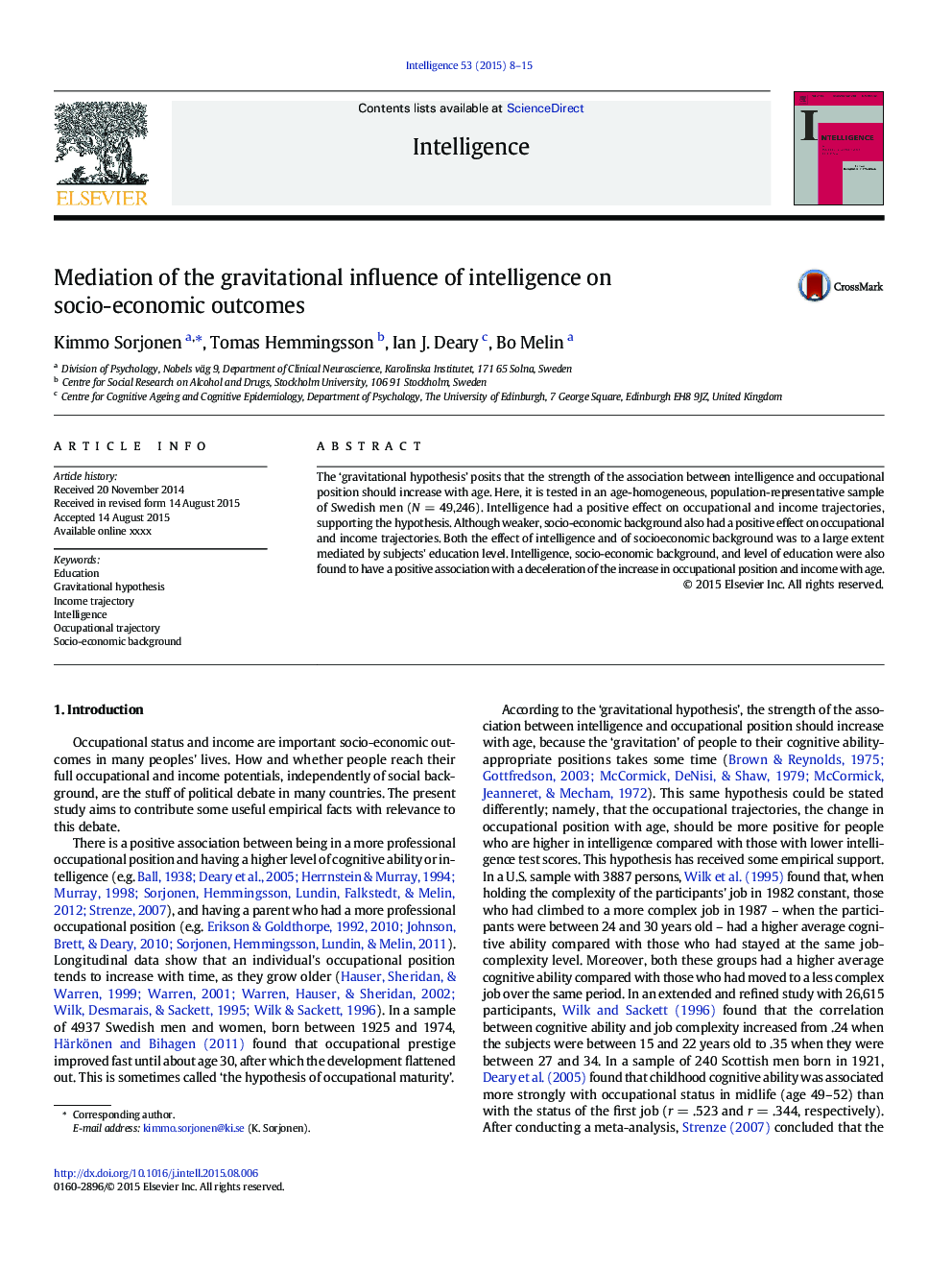| Article ID | Journal | Published Year | Pages | File Type |
|---|---|---|---|---|
| 7293534 | Intelligence | 2015 | 8 Pages |
Abstract
The 'gravitational hypothesis' posits that the strength of the association between intelligence and occupational position should increase with age. Here, it is tested in an age-homogeneous, population-representative sample of Swedish men (NÂ =Â 49,246). Intelligence had a positive effect on occupational and income trajectories, supporting the hypothesis. Although weaker, socio-economic background also had a positive effect on occupational and income trajectories. Both the effect of intelligence and of socioeconomic background was to a large extent mediated by subjects' education level. Intelligence, socio-economic background, and level of education were also found to have a positive association with a deceleration of the increase in occupational position and income with age.
Related Topics
Social Sciences and Humanities
Psychology
Experimental and Cognitive Psychology
Authors
Kimmo Sorjonen, Tomas Hemmingsson, Ian J. Deary, Bo Melin,
